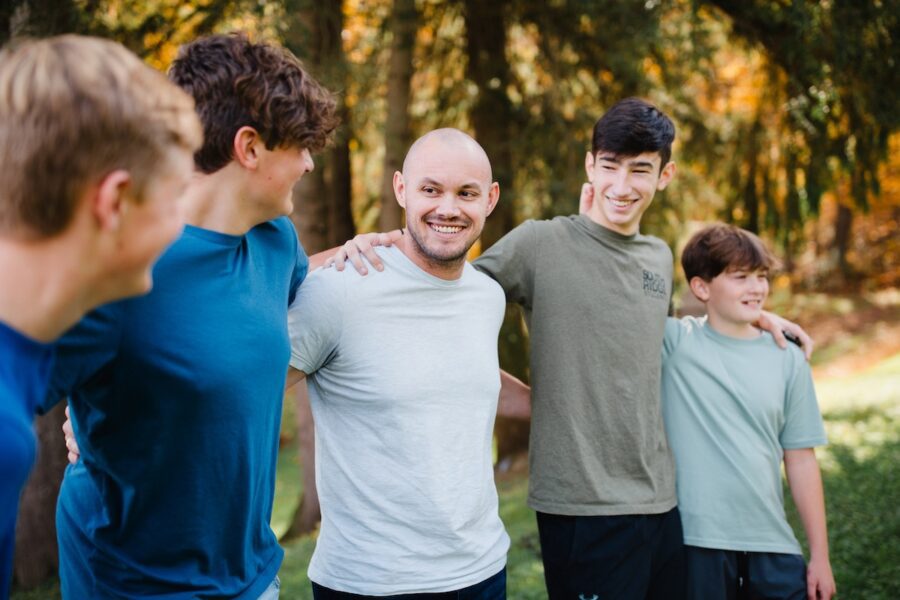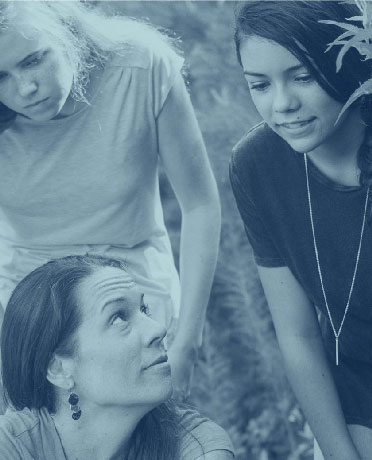Our Programs

Cultivate the Garden of Your Mind
Caesar and Cicero, Shakespeare and poetry, as well as American history, chemistry, music, philosophy, and mathematics are the gardens in which Challenge III cultivate their conversations. Through each area of homeschool study, high school-aged students discover their unique place in the overarching story of mankind’s search for knowledge and justice and the consequences of their choices.
Using all Five Canons of Rhetoric, students hone the art of effective and beautiful communication with their fellow man. This is an incredibly enriching high school homeschool program where parents will continue to see the rewards of their educational investment into their teenagers. Students are also able to earn college credits through our CC Plus program, should they desire.
Challenge Yourself to See the Truth
The Six Strands of Challenge III
Each additional building block brings us closer to Divine knowledge. Each week, students further their understanding and discuss assigned concepts from precalculus. Conversations held at home and within their community group seminar synthesize the ideas of relationships, shapes, higher order equations, variables, Euclidean proofs, and trigonometry functions.
To know His world is to understand its every component. Students spend the year immersed in the field of chemistry as this seminar offers a combination of labs and math tutorials. Students hone observation skills through hands-on science labs and witness the consequences of chemical combinations. Students build their own notebook, write lab reports, and complete additional scientific research at home.
French novelist Victor Hugo said, “Music expresses that which cannot be put into words and that which cannot remain silent.” In the first semester, Challenge III homeschool students learn the fundamental principles of music (from keyboard notation and key signatures to chords and triads) in the context of analyzing familiar hymn scores. The course provides students with vocabulary and conceptual knowledge that builds on their study of Western Cultural History in Challenge II.
In the second semester, students focus on Philosophy. Your high school-aged student can practice how to outline the text and prepare discussion questions at home each week. Besides examining the major ideas of influential philosophers, students work on the Five Canons of Rhetoric—invention, arrangement, elocution, memory, delivery—and improve their public presenting skills through student-led group seminars.
The past is a roadmap for the future. With a year-long focus on American history, students read and study the text, write and present essays that relate to various events in American history, polish presentation skills through a variety of forensics events, and compile events into a timeline. In their weekly community group seminar, students participate in Socratic discussions about events and philosophical ideas that shaped America, all firmly grounded in a Christian worldview.
Only by mastering a language can we appreciate all of its subtleties and nuances. In both semesters, students continue to follow Caesar’s footsteps in his conquest of Gaul and, later, to his final breath at the Senate in Rome. Next, students turn to the great oratory of Cicero, one of the finest Roman statesmen, who skillfully defends the ideals of a republic against a tyranny. Students encounter the elements of stylistic devices applied to political eloquence. They witness the intrigue of Cicero’s day, while gaining a deeper understanding of the art of rhetorical speaking.
Great thinkers are not limited by genre. This course requires students to read five Shakespeare plays, a Christian commentary guide of the plays, and a book on poetry. Students write an in-depth analysis of a chosen aspect from each play and create a poetry anthology of their own work. In community group seminar, students lead and participate in discussions about each play and present memorized lines in dramatic interpretation. Between plays, students present poetry readings and discuss poetic forms.
We embrace a real-world approach in all aspects of our education. Local directors can choose to offer a yearly formal event for Challenge students to better learn how to interact with their communities and each other.
Join the Conversation
Community is at our core, with families doing life together as they learn.
Find a community near you

